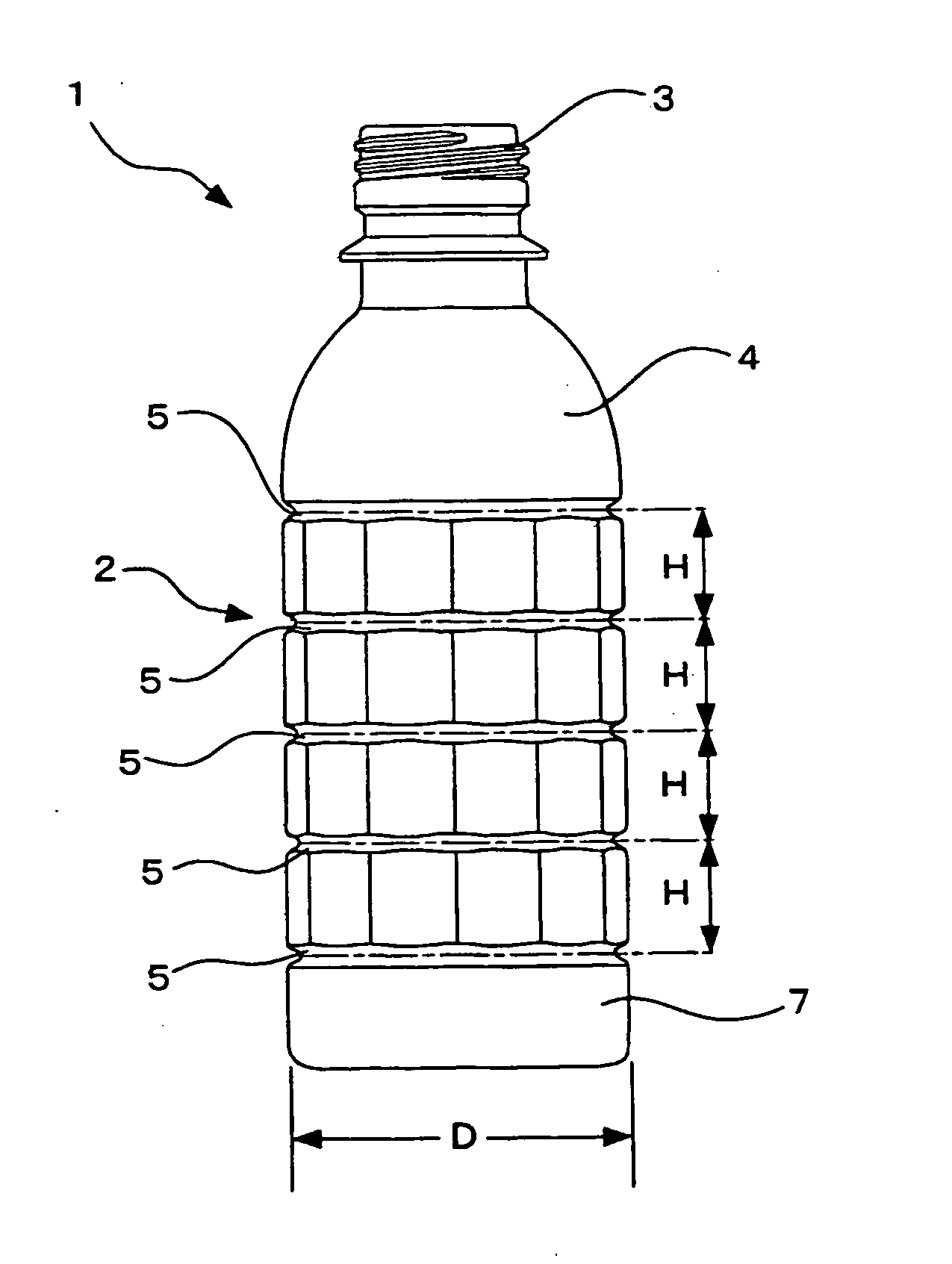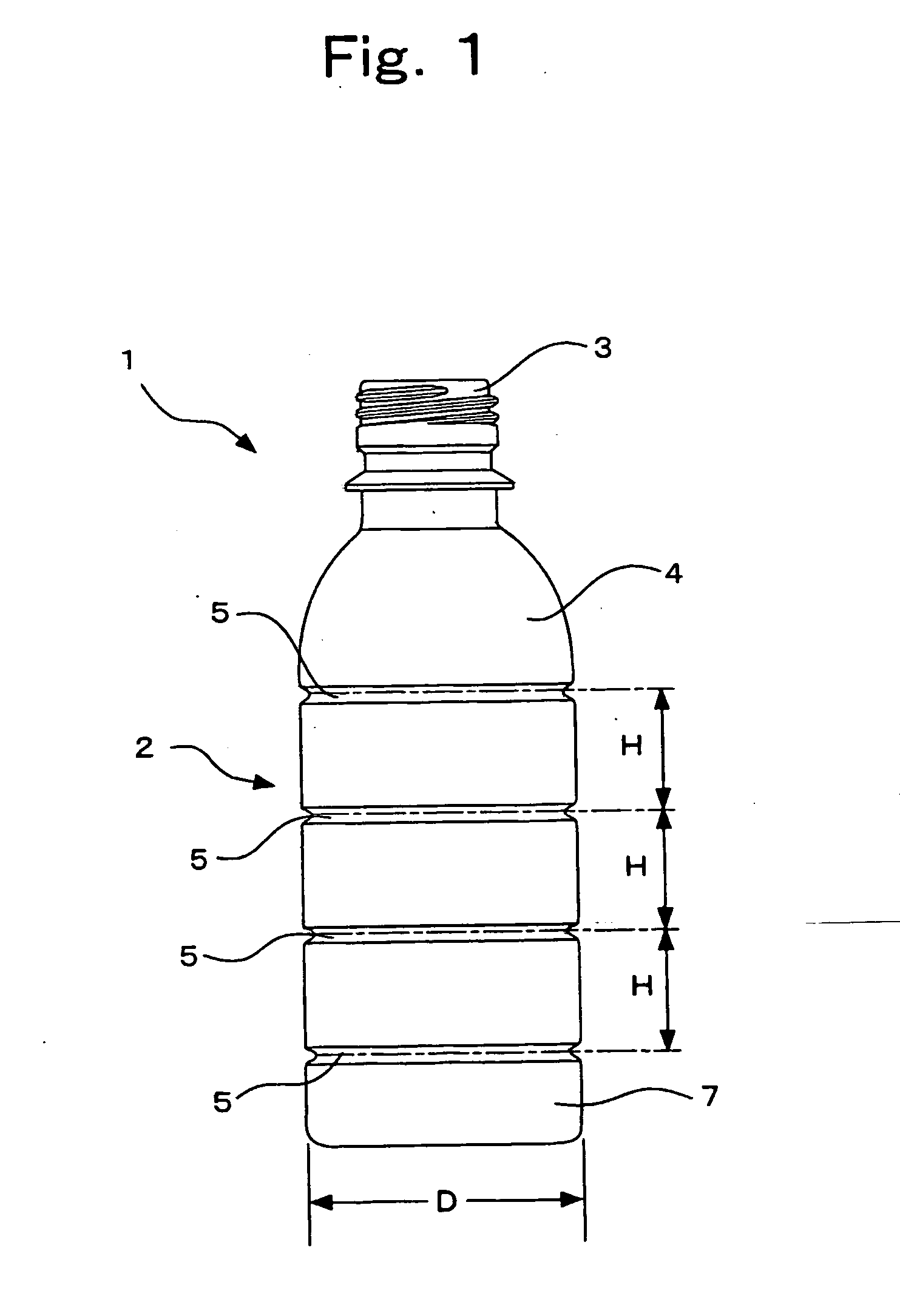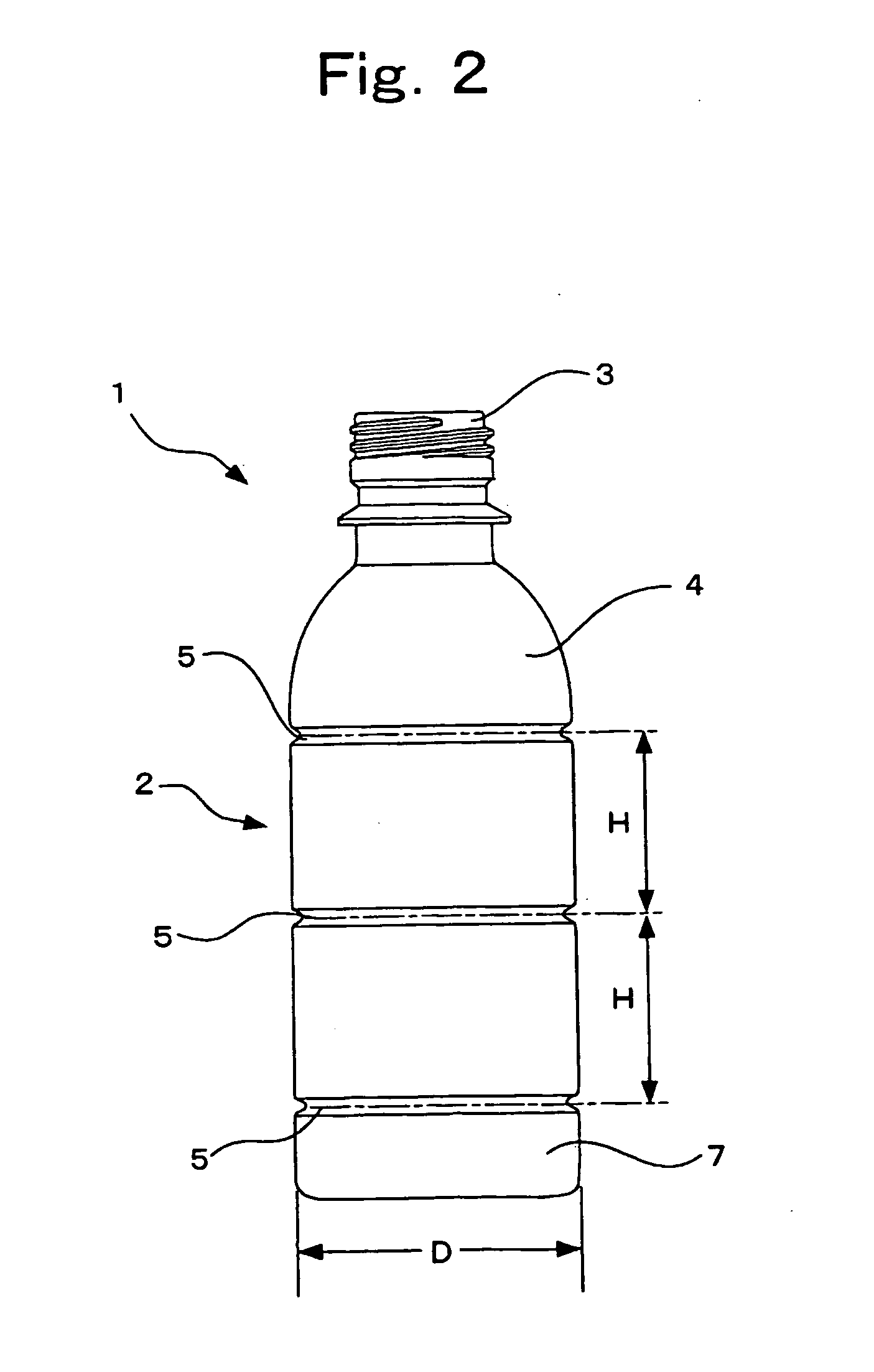Synthetic resin bottle
a synthetic resin and bottle body technology, applied in the direction of rigid containers, packaging, large containers, etc., can solve the problems of reducing the degree of negative pressure absorption, affecting the causing a marked damage to the outer appearance of the bottle, so as to achieve the effect of increasing the level of surface rigidity
- Summary
- Abstract
- Description
- Claims
- Application Information
AI Technical Summary
Benefits of technology
Problems solved by technology
Method used
Image
Examples
first embodiment
[0034] This invention is further described with respect to preferred embodiments, now referring to the drawings. FIG. 1 is a front view of an entire synthetic resin bottle in this invention. It is an ordinary 200-ml PET bottle, which has been biaxially drawn and blow-molded. In its structure, the bottle comprises cylindrical body 2, shoulder 4 of a truncated conical shape disposed at the upper end of the body 2, short cylindrical neck 3 disposed on the shoulder 4, and bottom 7 at the lower end of the body 2. The bottle 1 has the cylindrical body 2 with a diameter of 54 mm, and has a total bottle height of 140 mm. The body 2 has an average thickness of 350 μm and a minimum thickness of at least 300 μm.
[0035] The body 2 is provided with a total of four circumferential ribs 5 having a cross-section of almost U-shape. Among these ribs, the uppermost rib is disposed at the upper end of the body 2 near the border with the shoulder 4. The lowermost rib is disposed at the lower end of the b...
second embodiment
[0044] The bottle 1 of the filled with the contents, and the retort-packed bottle was heat-treated at 121° C. for 30 minutes. The bottle 1 was then cooled down to room temperature and was checked for any deformation. No dented deformation was observed. This bottle 1 had a depressurizing strength of 525 mmHg (70.0 kPa). Even for the pressure reduction derived from the treatment at such a high temperature, sufficient surface rigidity can be secured within the range of wall thickness that is permissible for the bottle, by setting a suitable distance H between two adjacent circumferential ribs 5.
[0045] The shape of this bottle obviously allows the bottle to be applicable also as an ordinary hot-filling bottle that has been biaxially drawn, blow-molded and can be heat-treated at a temperature in the range of 85 to 95° C. This shape of the bottle is not limited merely to the use as the retort-treated bottle.
third embodiment
[0046]FIG. 4 shows a synthetic resin bottle in this invention. The bottle has an average wall thickness of 350 μm, the cylindrical body 2 with the cross-section of a regular dodecagonal shape, a diagonal length of 54 mm, and five circumferential ribs 5 that are spaced equally. There was no dented deformation that was caused by the hot filling at a temperature of 87° C.
[0047] The circumferential ribs 5 are spaced equally in all of the first, second, and third embodiments. However, it is noted that these ribs need not necessarily be spaced equally. If they are not spaced equally, the purpose of this patent application can be achieved at the widest distance H in the range of 0.2D to 0.6D, and more preferably in the range of 0.3D to 0.45D, between two adjacent circumferential ribs 5.
[0048]FIG. 5 shows a synthetic resin bottle in the fourth embodiment of this invention. Two circumferential ribs 5 are disposed at the upper end and the lower end, respectively, of the body 2. Between these...
PUM
 Login to View More
Login to View More Abstract
Description
Claims
Application Information
 Login to View More
Login to View More - R&D
- Intellectual Property
- Life Sciences
- Materials
- Tech Scout
- Unparalleled Data Quality
- Higher Quality Content
- 60% Fewer Hallucinations
Browse by: Latest US Patents, China's latest patents, Technical Efficacy Thesaurus, Application Domain, Technology Topic, Popular Technical Reports.
© 2025 PatSnap. All rights reserved.Legal|Privacy policy|Modern Slavery Act Transparency Statement|Sitemap|About US| Contact US: help@patsnap.com



